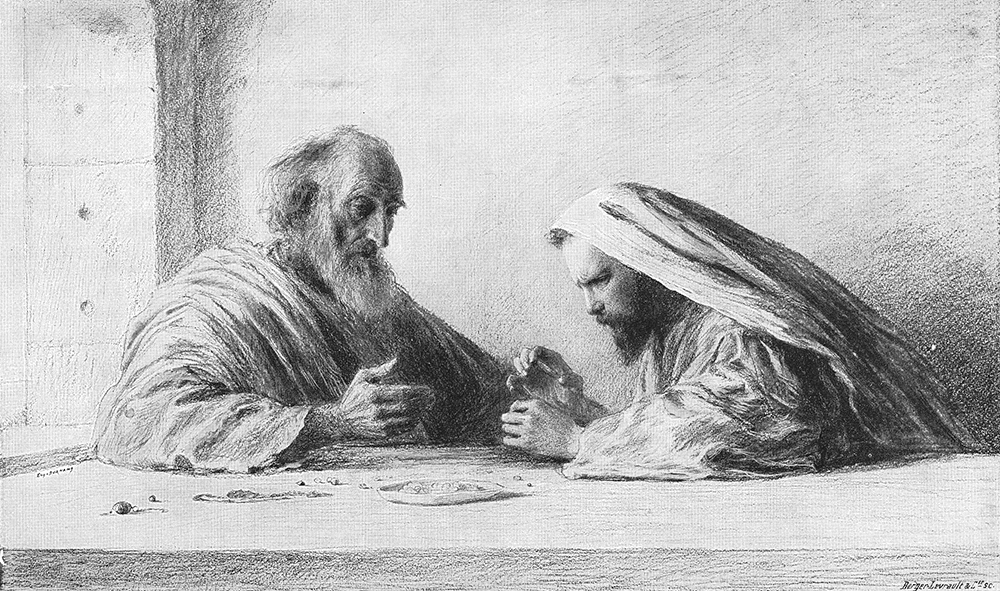Dallas Jenkins really brought Matthew’s character to life for me in his recent mini-series, The Chosen. Actor Paras Patel ably takes up the role. He depicts a Matthew who knows what he wants in life . . . and yet doesn’t know at all what he wants. On the one hand, he ultimately wants to be happy. In an effort to secure happiness, he attends to his publican duties with a singular thoroughness and accumulates those things which please him most: fine tunics, designer sandals, costly perfumes. On the other hand, he has no idea what he really wants. He is unsettled and uneasy. He has no friends aside from his sidekick dog. He is, in fact, not happy.
This predicament is not far from our own experiences. Every man, woman, and child desires to be happy. That desire is built into us. The child reaching for the cookie jar is searching for happiness. The man pulling 80-hours a week in his law office is searching for happiness. But at day’s end, the ten consumed cookies and soul-consuming workweek do not lead to happiness. What’s at fault is not our desire and search for happiness but our mistaken view of what makes for happiness.
Our Lord knows this dynamic. In today’s Gospel reading, he teaches using two “parables,” which liken the Kingdom of Heaven to the experiences of treasure-finding and pearl-seeking. In both parables, a man finds that one thing that will make him truly happy, and he gives away everything to have it.
The second parable emphasizes the conscious search for happiness. “The Kingdom of heaven is like a merchant searching for fine pearls.” We know we want happiness like the merchant knows he wants pearls. On the other hand, the first parable emphasizes the unexpected discovery of happiness. “The Kingdom of heaven is like a treasure buried in a field, which a person finds.” We who mistake so many lesser goods for happiness end up discovering happiness like the person in the parable who unwittingly discovers a hidden treasure in a place he would never have guessed to look. In a sense, the object of happiness reveals itself.
Only Matthew records these parables. They would no doubt have caught the attention of a former financier! After all, he too was a rich man in search of the one thing that would ultimately satisfy him. He was the merchant searching for fine pearls, and what he eventually found was as unexpected as treasure in a field: Divinity in human flesh. “Out of joy,” this tax collector sold all that he had—tunics, sandals, perfumes, and even the dog!—in order to have the one thing he now knew would make him happy. “As Jesus passed on from there, he saw a man called Matthew sitting at the tax office; and he said to him, ‘Follow me.’ And he rose and followed him” (Matt 9:9).
Matthew’s experience should make us wary of an expression so popular today: “Do whatever makes you happy!” It contains a mere half-truth. It reflects what we all know to be true: life’s goal is happiness. But the qualifier “whatever” often lands us in the realm of fine linen, cookies, and 80-hour workweeks. Power, pleasure, honor, fame, and wealth do not ultimately satisfy. They are false final goals. Jesus Christ is the pearl of great price we all desire. In him alone is the happiness we seek (cf. Ps 16:2 Grail). He is the treasure of God’s love for us, once hidden in figure and prophecy, now revealed. In him alone is our joy complete.
✠
Image: Eugene Burnand, The Pearl of Great Price







